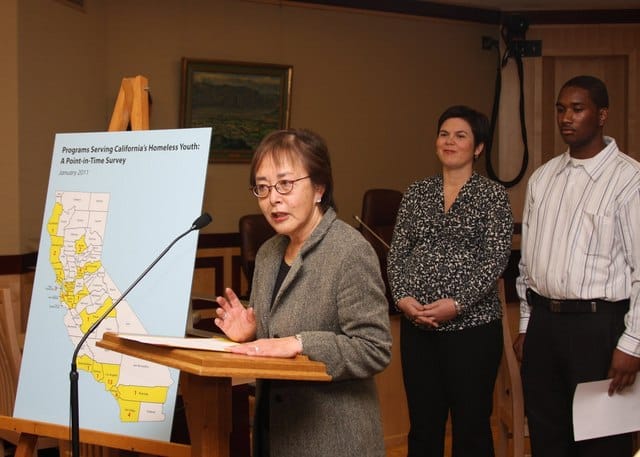SB 69 Continues to Challenge Brown's California School Funding Plan

Sen. Carol Liu, photo credit: California Senate

Senate Bill 69, led by Senator Carol Liu (D-Pasadena), continues to challenge Governor Brown's local control funding formula (LCFF). The bill passed in the Appropriations Committee on May 24 and was amended on Tuesday. It now outlines more specific spending plans for each grade level and increases funds for disadvantaged students.
Both Brown and Senate Democrats are hoping to reform California school funding for K-12. The two proposals emphasize increased funding levels for school districts with high levels of disadvantaged students, but differ on the details.
SB 69 retains the concept of base grants and supplemental grants for disadvantaged students. However, it does away with concentration grants -- even more funding for districts with disadvantaged students making up more than half the student population.
A key amendment to the bill is that supplemental grants were boosted from 35 percent to 40 percent. This means that districts would receive extra per-pupil funding at 40 percent of its base grant level for every disadvantaged student.
Disadvantaged students are those who receive free or reduced lunch plans, are in foster care, or are English-learners. For funding purposes, a student may only be counted once if he or she falls into multiple categories.
The Senate proposes base grant amounts that depend on grade levels. The funding formula outlined in SB 69 would go into effect beginning in the 2014-2015 school year:
($8,368)($7,221)($7,013)($6,910)
Brown has ADA base grant levels set to $6,816 initially and $7,895 by the time his formula is fully implemented. His proposed formula retains the 35 percent of base grant levels to provide supplemental and concentration grants.
Brown initially criticized the Senate bill, saying:
"An elimination of significant reduction of the concentration grant would direct new money away from the schools that it most and perpetuate existing inequities."
The change in SB 69 to increase the supplemental grant could be the kicker in budget negotiations between the Senate and Brown. The governor stated that his main concern is helping disadvantaged students. As Karen Walters, executive director of the State Board of Education, said regarding school funding negotiations: "time will tell."
K-12 schools in the state may see this as a good problem to have. No school is going to receive less money than it did for the 2012-2013 school year under either proposal.
California is expected to pass a budget by June 15 for the 2013-2014 fiscal year. Brown has relentlessly supported his school funding plan as is. His prudence may complicate a finalized budget if the Legislature decides to support SB 69 instead. However, amendments to the bill look to create more common ground.



